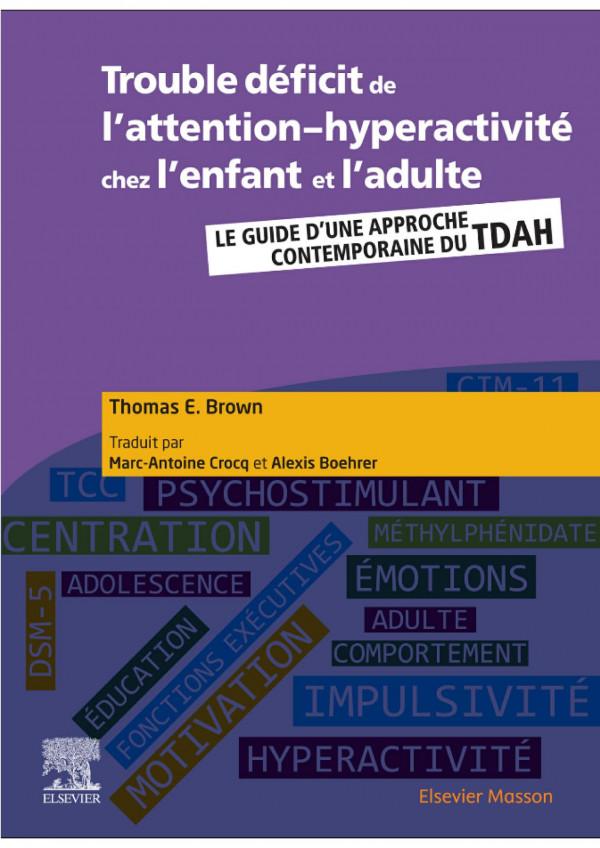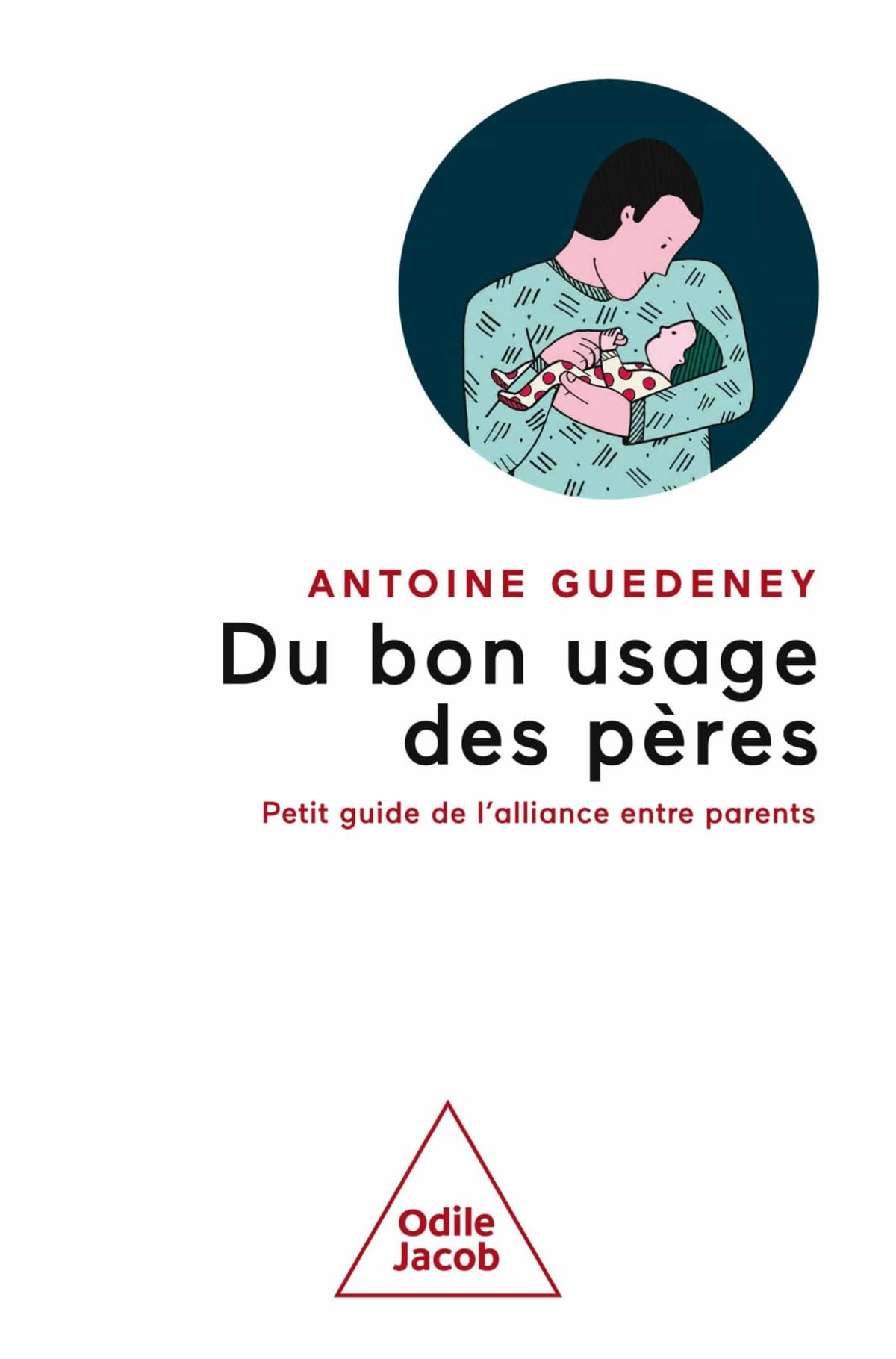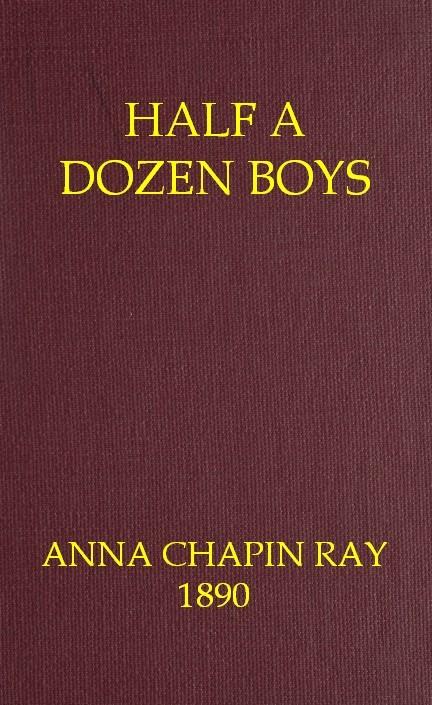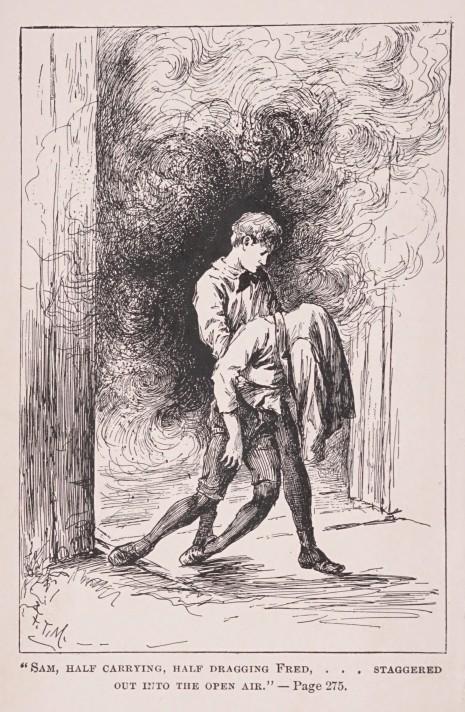HALF A DOZEN BOYS.
CHAPTER I.
INTRODUCES SOME NEW FRIENDS.
"'That among all the changes and chances of this mortal life,' intoned the musical voice of the rector, "'they may ever be defended by Thy most gracious and ready help, through Jesus Christ our Lord.'"
"Amen," responded the kneeling choir.
There was a moment of perfect quiet, as all bowed in silent prayer, and then the organist softly began to play the first lines of Barnby's All Saints' Hymn, "For all the Saints," and the boys rose for their recessional. Their bright, happy faces smiled down for a moment on the waiting congregation, and then their voices rose in the inspiring old hymn.
As the white-robed figures came down the steps from the pretty chancel, singing,—
"Oh, may Thy soldiers, faithful, true, and bold, Fight as the saints who nobly fought of old, And win with them the victor's crown of gold. Alleluia, Alleluia!"
more than one person in the congregation was touched by the solemn prayer, almost thoughtlessly offered. The eyes of one of their hearers grew misty as she watched the boyish faces, and tried to fancy the battles in store for the young soldiers.
As the leaders passed her, they gave her a bright smile of recognition, while high and clear rang their voices,—
"'But lo! there breaks a yet more glorious day; * * * * *
The King of Glory passes on His way."
And the line went on out into the choir room, from which came the final Amen.
The people moved down the aisle, laughing and chatting, but the young woman of whom we spoke stood a moment, waiting until she was joined by one of the choir leaders, a bright-faced lad of thirteen. He came up to her, holding, for convenience, his hat in his teeth, while he pulled on his overcoat. His cheeks were flushed and his dark eyes shone with the excitement of the music, but his face was unusually sober.
"Well, Rob?"
"Oh, cousin Bess, have you heard about Fred?"
"What is it, my dear? I hope all is going well with him. But wait a moment; I must speak to Mrs. Read. Then I'll come and hear all about it."
Rob fidgeted about the door of the cosy little church until his cousin joined him. To go home from evening service without her, would have been to deprive Rob of one of his weekly pleasures. Cousin Bess was his confidante, adviser, and oracle; and to-night, seeing the boy was really anxious to talk with her, she hurried her interview with the garrulous mother of eleven children, and, leaving half told the tale of Tommy's mumps and Sallie's teeth, she turned to the door, and, with Rob at her side, stepped out into the cold November starlight. The boy shivered a little.
"Cold, Rob? You'd better turn up your collar, after being in the warm church, and in your heavy robes, too."
"I'm not cold," he said hoarsely.
"What is it, dear? Is anything the matter?"
"It's Fred. He's come home from Boston, and he's lots worse. The doctor says he can't ever see again as long as he lives." And Rob tried to swallow a great lump in his throat, as he told of his friend's trouble.
"Why, Rob, what do you mean? When did he come home? Who told you?"
"Phil told me just now. He came home late last night, and Phil met his father to-day. The trouble's all gone into his opposite nerve, Phil said, and they say he'll be blind forever. Isn't it awful, cousin Bess?"
"Indeed it is, my boy," said Bess, too much shocked by Rob's tidings even to smile over his "opposite nerve." "But I don't see what this can have to do with his eyes. I do hope there is some mistake."
"I'm afraid there isn't," said Rob, shaking his head doubtfully. "You see, Phil saw Mr. Allen just this noon."
"I know; but his eyes have never troubled him, have they?"
"Not much. A year ago, I guess 'twas, he stayed out of school about a week, 'cause it hurt him to read. But perhaps it isn't so bad as they think."
"Poor Fred!" said Bess, drawing her little cousin closer to her side, as she thought of the suffering of this other boy. "If this is true, he has a sad, sad life before him. You boys, Rob, must do all you can to help him, when he gets strong enough to see you again. You can do so much for him if you only try. I know my boy will, won't he?"
"Why, yes. But how can we, cousin Bess?"
"In ever so many little ways. Go to see him, read to him, talk to him, only not about things he can't do; get him to go out with you,—anything to keep him from feeling he is left out in the cold, and you boys get on just as well without him."
They walked on in silence for a moment, and then Bess asked,—
"Rob, do you remember the third verse of your recessional hymn?"
"I don't know. What was it?"
"'Oh, may Thy soldiers,'" quoted Bess, and Rob took up the line, half under his breath. When he had finished it,—
"Well, what about it?" he asked.
"I was thinking to-night, as you came out singing it, that I wondered what fighting you boys would have to do. Fred has come to his, but the 'victor's crown of gold' will be very hard for him to win, I am afraid."
"Why, cousin Bess?"
"Rob, my boy, suppose all at once you had to just drop right out of all your boy fun and games, couldn't read or study, or even go to walk alone; do you think it would be real easy to always be bright and cheerful, never complain or be cross? It is just by bearing this trouble like a man and a hero that the 'victor's crown' will come to Fred. It will not be a very happy life to live. But we will hope Phil made some mistake. Almost anything would be better than for him to be blind all his life; and I can't see what should bring it on. Did Phil say how he is now?"
"Mr. Allen said he was better, and asked Phil to go to see him before long."
"I hope he will, and you too, Rob," said Bess, and then added, "How well the music went to-night," hoping to turn her cousin's thoughts into a more cheerful line. But it was of no use.
"Fred was just coming into the choir when he was taken ill. The boys all wanted him, for he has a first-rate voice; but I suppose he can't now. We'd been planning for his coming as soon as he got well, and he's only a little shorter than I, so he'd have sat next either Phil or me."
"I didn't know he sang," answered Bess. "But here we are at home. Won't you come in, Rob?"
"No, I must go home and go right to bed. I was out late last night, you know. Good-night." And the boy turned to go on as Bess called after him,—
"Sweet dreams to you, my boy! And come up to-morrow after school. I shall go down to see Fred in the afternoon, and I can tell you more about him then."
She went into the house, stopping a moment in the hall to take off her hat and fur-trimmed coat, and then, pushing aside the portière, she entered the bright, pretty room, where her mother sat reading. The light from the fire, blazing on the andirons, flickered over the walls, showing a few fine pictures, some dainty bits of bric-à-brac, and, scattered around and among all, many books. But the prettiest thing in the room was the white-haired woman who sat by the table in a low chair. Her gentle expression and the loving, kindly look in her eyes plainly spoke the word mother; and a real mother she was, not only to her own flock, now all married and gone except this one daughter, but as well to all the young men and maidens, boys and girls, that ever came into her way. Years of delicate health had kept her much at home, but her parlor was the favorite resort of love-lorn maidens, ambitious youths, and small urchins whose broken kite-tails needed prompt attention. Not one of them left her without feeling better for her loving words of advice or consolation; her ears were always open, and to each she could and did give the one thing most needed.
Bess pushed a low stool to her side, and sat down on it, with her arm in her mother's lap.
"Did you have a pleasant service?" asked the older lady, laying down her book, and giving her daughter's hair a caressing pat.
"Very. Mr. Washburn did so well to-night, better than usual, and the music was"—
What it was, Mrs. Carter was never destined to know, for at the sound of her daughter's voice, there was a sudden uprising in the willow basket by
the fire, and out jumped a small gray dog, who stretched himself for a moment, and then darted straight at his mistress, and climbed into her lap with sundry growls and yelps of pleasure, wagging, not his tail only, but his whole body, clear to his curly head. Standing up in her lap, he struck out with his forepaws, with an utter disregard for her comfort, and only intent on giving her a cordial welcome. Bess bore it meekly for a time, but a vigorous scratch on her cheek was too much for even her patience, and she pushed the dog gently down with a "That will do, Fuzz"; so he trotted away, and began to search diligently in all the corners of the room.
"Did Rob come up with you, as usual?" asked Mrs. Carter, when quiet was once more restored.
"Oh, yes; I can always depend on him. What a dear boy he is! Oh, Fuzz! have you found your ball?"
For Fuzz had returned on the scene, and brought with him the object of his search, a small, soft ball that he could easily hold in his mouth, or, when he preferred, carry it hooked on one of his teeth and hanging out at the side of his mouth. Now, rolling it up towards Bess, but just out of her reach, he ran back a few steps, flattened himself on the carpet, wagged his morsel of a tail convulsively, and rolled his eyes, first at the ball then at Bess. But Bess was in no mood to play, however much Fuzz might desire it. She was just beginning to tell her mother about Fred, when the dog, seeing that the suggestive wag of his tail had no influence, uttered a loud, sharp bark.
"No, no, Fuzz!" said Bess, frowning on the excited little creature. "I'm too tired, and I don't feel like playing."
But Fuzz was deaf to her remonstrances, and again gave vent to his feelings in the same bark, but this time, to add to his powers of persuasion, he sat up on his haunches, dropping his little forepaws in a supplicating fashion, while the stumpy tail still wagged furiously. It was not to be withstood. As usually happened in that house, Fuzz conquered; and Bess rose, took the ball, and threw it into the darkest corner, hoping to gain a moment's rest while the dog hunted up his treasure. Fuzz scrambled after it, his sharp little claws catching in the carpet as he ran, and in another moment he had deposited it at the feet of Bess, and run back as before.
Experience had taught his mistress that when Fuzz wished to play, she must obey his will, and keep him running after the ball until, tired out, he should be ready to go back to his cushioned basket.
In the intervals of her attentions to Fuzz, she told her mother Rob's account of Fred, and then went on to speak of the people she had seen, of the sermon, and of other bits of news likely to interest her home-abiding mother. A few moments' rest from Fuzz were succeeded by howls from the next room, at first low and mournful, but as these proved unavailing they gradually turned into the same deafening barks that had before carried his point.
"Oh, you tiresome puppy!" exclaimed Bess, in despair.
Rising, she went to the next room, where, in front of a tall bookcase, lay Fuzz, pawing wildly at the narrow crack that separated it from the floor, in the hope of rolling out his cherished ball. For the twentieth time that day Bess resigned herself to the inevitable, and, kneeling down on the floor, with difficulty she reached under the bookcase, grasped the ball with the tips of her fingers and drew it out, while Fuzz, utterly regardless of her nerves and her Sunday gown, capered back and forth over her, barking madly all the time.
Fuzz was the ruling member of the Carter family. Two years before, Bess, scorning Dominie Sampson, the family collie, had been anxious to own a toy terrier, and her indulgent father had for months been watching for an opportunity to gratify his daughter's wish, when one day he came triumphantly home, and from his pocket produced a tiny, squirming ball of wool. The ball, on being set down on the floor, disclosed four wee paws, a dot of a tail, two huge ears, a short black nose, and an overwhelming tendency to tumble over on it.
Uttering feeble barks, the absurd little creature toddled up to Mrs. Carter's ball of yarn that had fallen from her lap, tried to take it in his mouth, tangled himself up in it, broke the thread, and then stood meditatively viewing the ruin he had worked. For a moment Bess and her mother looked at each other in despair, and then they began to laugh. From that time the puppy's destiny was an established fact.
Fuzz, as he was named, rapidly grew from the dimensions of a sixweeks-old puppy to three times the size of his ancestors. Though bought at a high price for his exceptionally small size, his long, silky blue hair, and his equally blue blood, it must be confessed that in all these respects Fuzz was weighed in the balance and found wanting. His silky blue coat was almost white, and, instead of sweeping the ground, as should the hair of a truly aristocratic Skye terrier, it curled in tight short rings about his head and face, and from there gradually dwindled away until, at his tail, he was only covered with a few sparse locks, through which his darker gray skin was plainly visible. His baskets, collars, and other belongings were rapidly outgrown, and the new ones substituted for them soon shared the same fate. And, as if to keep pace with his body, his temper and will grew at the same time; for the disposition of the dog was an uncertain quantity. Though no one ever spent twenty-four hours in the house with him without yielding to his fascinations, strangers and chance callers, one and all, detested him. In spite of words and blows, Fuzz would run out and bark whenever the bell rang. And on some occasions he varied the monotony by firmly seizing the new-comer by the clothing, greatly to the resentment of the chosen few whom he favored with this attention. Tying him up or shutting him in a room by himself proved of no avail, for, in the one case, he invariably bit the string in two; and, in the other, his small paws scratched the door with such zeal that varnish and paint vanished before his attacks, while his voice was meanwhile raised in protest against his durance vile. Two years fraught with bitter experience had taught Mrs. Carter and Bess that the dog's will was law, and when once his bark was heard the person nearest him hurried to do his bidding. Such was Fuzz, who, while we have been making his acquaintance, had retired, ball and all, into his basket by the fire, where he made his bed by pawing and mouthing his rug into a lump in one corner, and then settled himself to his well-earned repose, occasionally opening one eye and growling sleepily when the fire gave an unusually loud crackle.
For a long time the mother and daughter sat in the fitful light, talking of different matters, until Bess once more spoke of Fred.
"Doesn't it seem hard and cruel, mother, to just shut out that active boy from everything he most enjoys? I can't see any cause for it at all; and yet there can be no mistake."
"Poor little boy!" said Mrs. Carter, gently pushing her daughter's hair back from her face. "He has a hard life before him, and no one to help him bear it, though he will have everything that money can give. His father and mother are not the ones to teach him how much that is good he still has left; and he looks to me like a boy that will take this very hard."
"Who wouldn't?" said Bess impetuously. Then she added, "What a shame you couldn't have been Fred's mother! You ought to have the bringing-up of all the boys in the country."
"I should probably have been the worst possible mother for most of them," replied Mrs. Carter, with a smile. "But when shall you go to see how Fred is? I think you almost ought to go soon, for the boy is so fond of you."
"I told Rob I should go to-morrow; and oh, how I dread it! I don't know at all how I shall find him: whether he is over his old trouble, or whether he can see now. I suppose I ought to go, though. Poor Rob was quite upset by the news."
"He is a sympathetic boy and very fond of Fred. I wish he would go to see him when he can. He is so gentle he wouldn't tire him; and his quiet fun would be the best possible medicine for the poor child."
"Rob promised to go when he might. I think it took all his heroism, for he is so afraid of Mrs. Allen. Why, now I think of it, she was at church this morning, for I remember noticing her new bonnet. How strange for her to leave Fred his first day at home!"
"I fancy that is her way of doing," said Mrs. Carter as she rose from her chair. "Well, I think I shall say good-night to you, my daughter."
A few moments later Bess followed her up the stairs, singing softly as she went,—
"'And win with them the victor's crown of gold. Alleluia, Alleluia!'"
CHAPTER II.
FRED.
A cold, dreary November rain was driving against the windows, and the heavy, dull drops chased one another down the glass. Within the room all was bright and warm, with a cheerful fire in the grate. The double parlors were richly and tastefully furnished, yet they were far from attractive, for their very elegance made more noticeable their lack of homelike cosiness. No pets were ever allowed to invade their sanctity, no work-basket of mending ever encumbered one of their tables. The very books and papers were always carefully returned to their accustomed places, though they were to be taken up again ten minutes later. The glowing coals shone on only one object in any way suggestive that the room was ever entered except to sweep and dust it.
In the back parlor a low, broad sofa was drawn up before the fire, and on it lay a boy of twelve, so quiet that one coming suddenly into the room might have fancied him sleeping. But with a sudden weary sigh he turned his head on the pillow, and pulled the gay afghan more closely around his shoulders, dropping, as he did so, two or three chocolate creams left from some previous feast.
"Oh, dear!" he said, half aloud, half to himself, "mother'll scold if those get smashed on the carpet." And, slowly getting down on the floor, he felt carefully about, evidently trying to find the missing candy, which lay, plainly visible, near the fender. At last his hand touched it, and, putting it on a table that stood close to the sofa, loaded with fruit, flowers, and candy, he impatiently threw himself down and covered himself again.
He was a handsome boy, with his light brown hair, swarthy skin, and great, dreamy, brown eyes; but his dark skin had no flush of health, and the
beautiful eyes had a vacant, blank look, while the boy face wore a fretful, discontented expression, rarely seen in one so young. This was Fred Allen, who, ten months before, had been a leading spirit among the lads of his age. Bright, frank, and full of fun, though rather quick-tempered and imperious, his friends had bowed before him, both for his skill in all the field games so dear to boyish hearts, and for the ease with which he kept at the head of his classes in school. Equally devoted to his baseball bat and his books, petted by his teacher, and adored by his boy friends, Fred was in a fair way to become spoiled and headstrong. Just at this time a prize was offered to his class for the best set of examinations, and Fred worked early and late over his lessons, that the prize might be his. It was a proud and happy moment for him when, after the teacher had announced that the prize was awarded to Frederic Hunter Allen, for general excellence in his studies, a boy voice called out: "Three cheers for Fred Allen," and the cheers were given with a will.
But the boy had overstudied, and within a week or two signs of intense nervousness showed themselves, and soon settled into a severe case of chorea, or, as the cook called it, "Saint Vitus's twitches." For three months the boy was very ill, seeing no one but his parents and Bess Carter, who spent two or three afternoons of each week with him. Then his mother declared that her own nerves were getting so unstrung, and Fred was not gaining any, why not have him go to Boston to a specialist?
So a private car was ordered, and the boy was taken to Boston, where he was left in charge of a noted doctor and a professional nurse of undeniable reputation and heart of iron, who presided over her patients with a clock in one hand and a thermometer in the other, with no allowance made for personal variations.
His mother, in the mean time, was free to recuperate her nervous system by a round of calls, shopping, teas, and theatre-going, to which the illness of her only son had been a serious hinderance. People talked a little, as well they might, but Mrs. Allen spoke so regretfully of her own poor health, and wiped her eyes so daintily when any one asked for Fred, that it was the general opinion that she was more to be pitied than her little son.
As the months passed, and the boy did not return, inquiries for him grew fewer, and to these few Mrs. Allen responded with indifference. Mr. Allen went occasionally to see his son, but he was a cold, proud man, whose chief ambition was that Fred should make a fine appearance in society, as a worthy heir to the fortune that he would one day leave him.
But the reports of the specialist were not encouraging. The chorea was a little better, but something seemed wrong about the boy's sight. A wellknown oculist was called, and he ordered word at once sent to Mr. Allen that the trouble had all centred in the optic nerve, which was rapidly being destroyed, and that his only son must be blind forever, with no hope of any cure.
It was a terrible blow to the father, whose hopes and plans for the future were all destroyed. His feeling for his son had been pride, rather than love, and this pride was sorely wounded. A sudden press of business had kept him for some days from going to his boy, and by the time he reached him, the disease had made such rapid advances that Fred could no longer see his father, except as a dark shadow against the sun-lighted window. In other respects he was much better, and so anxious to be at home that the next afternoon the journey of a few hours was taken, and in the early November twilight he was helped up the familiar steps into the hall, where his mother met him with convulsive kisses and sobs, called him her poor, dear little Freddie, and then—went away to dress for a dinner-party, leaving the boy to the tender mercies of the servants, who were thoroughly rejoiced to have him at home once more.
This afternoon, directly after lunch, she had helped Fred to the sofa where we found him, put a plate of Malaga grapes and a dish of candy on a table beside him, and, telling him to ring for Mary in case he needed anything, she had gone away "to take forty winks," she said. But the forty winks lasted a long time, and for more than an hour Fred had lain there, listening to the dashes of rain against the window, and counting the street cars that jingled on their way past the house.
Suddenly the door-bell rang, and, at the sound, a dark red flush mounted to the boy's cheek, and a frown gathered on his face.
"Somebody coming to look at me!" he muttered; and then lay very still, listening to Mary's steps as she answered the summons.
But when he heard a familiar voice ask,—
"Well, Mary, is Master Fred in?" his face grew suddenly glad, and, sitting up on the sofa, he turned his head eagerly towards the door.
Mary's reply was inaudible to him, as she said,—
"Oh, Miss Carter, I'm so glad you've come. Master Fred's all alone out in the back parlor, and he's sad enough, poor boy!"
Then he heard Bess speak again: "Please take my cloak, Mary, it is so wet; and ask him if I may go right in there."
"Oh, do come quick, Miss Bessie!" he called out. "I'm so glad you have come." And as he heard the door open, and the light, quick steps advancing towards him, he stood up and put out both hands to greet his guest, with no trace of his old fretful look.
With a hasty glance Bess noted the helplessness that prevented his meeting her at the door, but she only said, as she kissed him,—
"Well, Fred, I am so glad to have you back within reach once more."
"You have missed me, then?" asked the child anxiously, as she drew him to the sofa and seated herself by his side.
"Missed you, you silly boy! What a question! Of course I have. 'We boys,' as Rob says, have been longing for you to be back again. I have felt quite lost without you."
"How is Rob,—and all the other boys?" inquired Fred, relieved that Bess seemed so unconscious of his condition.
"Well, all of them. Rob is coming down as soon as you feel like seeing him. I see more of him than I do of any of the others. Phil runs in once in a while, but he is so busy all the time. Teddy was at the house one day last
week, the same dear, slangy boy as ever. But tell me, am I not crazy to come down such a day?"
"It's a kind of crazy I like," said Fred. "You were awfully good to come, and I've been alone here ever so long."
"So much the better," said Bess, mentally abusing the mother who could leave her boy under such circumstances; "we can have a real good, oldfashioned visit, and when you get tired of me, you may send me off."
Fred's hand moved about in search of hers, as he asked,—
"How did you know I'd come?"
"Rob told me last night."
"Did he tell you"—
Fred could go no farther. Bess pulled the appealing little face over against her shoulder, and gently smoothed his hair, as she answered, using all her self-control to speak quietly,—
"Yes, dear, he did. I can't tell you how sorry we all felt for our boy. That doesn't make it any easier to bear, I know; but perhaps in time we can help you a little."
For the first time since his learning the sad truth, the boy broke down. He had listened to the words of the oculist without a tear, too much stunned even to speak, and he had met his father and mother with perfect quiet. But the few gentle, loving words had broken his firm resolve not to be a baby; and the tears gathered fast and fell, as he sat with his head on Bessie's shoulder, her arm about his quivering little body.
"Oh, don't tell the boys!" he sobbed at last. "Don't tell them I cried. I didn't mean to; but it's all so dreadful, here in the dark."
The tears stood in the girl's eyes as she answered,—
"My dear little boy, we all know how terrible it must be; but I won't tell the boys if you say so. Just cry it all out; you have tried to be too brave. Rob almost cried for you last night."
The sobs came less often, but the look of sadness on the boyish face made Bessie's heart ache for the child, but she said cheerfully,—
"Now, my son, I am going to take my old place as nurse to-day. You aren't very strong yet, and I want you to lie down again here on the sofa, and if you can spare a little of this lunch—I don't approve of candy between meals, you know—I'll move the table away, pull up this low chair, and tell you all the news."
Suiting the action to the word, Bess tucked the afghan round Fred's feet, drew a willow chair up to the place of the despised table, and sat down close to the child, who once more reached out for her hand.
For an hour she sat there chatting to the boy, telling him of the scrapes his friends had been in, of the pranks they had played, until she began to see traces of the old merry Fred, as the look of sorrow gave place to a smile, and then to a hearty laugh, while she described Rob's recent attempts to climb a picket fence too hastily, and his being caught by his shoe and hung head downward, from which position he was ignominiously rescued by a passing Irishman.
In the mean time, Bess was glad that her little friend could not see her expression, as she sat looking at the worn, sad face, and the great vacant eyes, that used to have such bright mischief dancing in them. But she forced herself to talk on, as easily as she could, more than rewarded by the pleasure in Fred's face, and his tight grip of her hand.
At length a step was heard on the stairs, and Mrs. Allen, daintily dressed and looking provokingly fresh and unruffled, Bess thought, came into the room.
"Why, Bessie, when did you come? How stupid of Mary not to tell me you were here!"
"I told her I came to see Fred, and not to disturb you," said Bess, as Mrs. Allen swept to the sofa and bent over her son.
"I am quite jealous of Fred, for you have hardly been here all the time he was away," she said. "But he needs you now badly enough, poor boy!" putting a delicately embroidered handkerchief to her eyes. "Isn't it hard to see him in this condition?"
Again the burning flush rolled up to Fred's hair, and the hand that was tightly clasping Bessie's grew suddenly cold. Bess gently kissed him before she answered,—
"You ought to know of my sympathy for Fred, Mrs. Allen. No words can express it. But I am glad to have him here again. We were having such a good talk, just like old times."
With an air of relief, Mrs. Allen took the hint, and left them alone again. When she was gone, the boy settled back on his pillow, saying gratefully,—
"It is awfully nice to have you here. Tell some more about the fellows."
So Bess talked on, racking her brains for any bright, funny bit of gossip that could rouse the lad from his depression, and give him something to think of during the many sad, lonely hours that she saw were in store for him. But the dreamy chime of the cathedral clock on the mantel, as it struck four, reminded her of her promise to see Rob after school, and she rose to go, saying brightly,—
"Now, my boy, I have worn you all out with such a long visit, for a first one. I must go now, for Rob is coming up after school, and I must be at home in time to see him. I hope I sha'n't drown on the way," she added, as a fresh gust of wind brought a flurry of rain against the windows.
"I wish you needn't go," said the child. "It has been so jolly to see you again. You haven't been here but a few minutes."
"An hour and a half, exactly," answered Bess, "but I'm coming again real soon."
In the early twilight of the stormy day, the room was growing dark. As Bess stooped to say good-by to the boy, she was surprised to feel the hot tears on his cheeks. Sitting down on the edge of the sofa, she drew his head over into her lap, and stroked his face in silence, for she felt no words could comfort the little lad.
"If you only needn't go," he said. "It all seems so much easier when you are here. Miss Bessie, I can't stand it! What shall I do?"
"Fred, I know it is hard, so very hard. I wish I could stay with you always, if you want me. But I will truly come again in a day or two. We are all so sorry for you, and long to help you." Then she asked, "May Rob come some day to see you? He is such a good little nurse."
Fred shook his head.
"Not yet," said he. "I'd rather not have the boys round just yet. But I mustn't keep you. Good-by." And, getting up, he moved a few steps towards the door.
"Don't be in too much of a hurry, my dear," said Bess. "I must ring for Mary to bring my cloak. Don't try to come to the door, you will only tire yourself for nothing." And, putting him back on the sofa with a gentle force, she kissed him and was gone.
Later, when Bess, her parents, and Rob, who had been prevailed upon to stay, sat at their dinner-table, the young lady, after silently pondering some question in her own mind, suddenly announced with considerable energy,—
"I think Mrs. Allen is the most selfish woman I ever saw!"
Mrs. Carter, in her surprise at the outburst, dropped the biscuit that she was feeding to Fuzz, under cover of the tablecloth; for it was the rule of the family, agreed to by each, and broken by all, that Fuzz should not be fed at meal-times. The biscuit was at once appropriated by the dog, who trotted off to a corner with it in his mouth, and there proceeded to devour it, with sundry growls at the shaggy collie who gazed with longing eyes on the tempting morsel.
"Bess, my daughter," began Mrs. Carter, "don't be too severe. She may not be very strong."
"Strong, mother! How much strength does it take to entertain one's son who is ill? She'd better give up a few dinners and theatres. The idea of her leaving Fred alone all the afternoon. Rob, the next time you come up here, when you are tired and cross and headache-y, I am going to take a nap, so there!"
CHAPTER III.
THE BEGINNING OF THE FIGHT.
True to her promise, Bess did go often to see her boy. For several weeks it was her habit to spend a part of every afternoon with him; and the lad's evident pleasure at her coming made her feel richly rewarded for the time she gave up to him. He at once recognized her step in the hall, and she always found him sitting up on the sofa, eagerly waiting for her to come to him.
Mrs. Allen rarely appeared, and the two had the room to themselves, while Bess either read aloud, or talked to Fred as she sewed on some bit of work she had brought with her. To her mother she confessed that after her usual call her mind was a blank, for she tried so hard to think of some bright, interesting conversation for the lonely, sad boy. Her patient was not an easy one to manage, for though Fred rarely complained, during the long hours he was alone he brooded over his trouble until it seemed even harder than before, and the old days of school and games were like dreams of another and a happier world. His father was at his office all day, and his mother, absorbed in her social life, had little time to give to her son; and both of them regarded the boy as well cared for if he were only supplied
with all sorts of dainties, and had the most comfortable sofa and chair given up to him.
Sometimes Bess found the child so disconsolate that she knew not how to comfort him; sometimes he was moody, and slow to respond to her efforts to be entertaining, but before she left him, her womanly tact had smoothed away the frown, and forced him to laugh in spite of himself. And in the worst of his moods he was never cross to her, but always seemed grateful to her for her coming.
"If you only needn't go home at all!" he said to her one day. "It's lots more fun when you are here, Miss Bess. The rest of the time I just lie here and think till I get cross, and everything seems awful."
"Why do you 'just lie here and think,' then?" asked Bess, feeling that here was a chance to make a good suggestion. "You are strong enough now to go to drive every pleasant day. Why don't you?"
"I don't know; I don't want to," said Fred, as the quick color came to his cheeks, that were beginning to have a more healthy look.
Bess was expecting that reply, for several times before now she had tried to coax the boy into going out. But he had been ill and by himself for so long, and had dwelt so continually on himself, that he had become very sensitive about his blindness, a state of mind not at all improved by his mother's tactless attempts at consolation. With Bess he could and did talk freely, but with no one else, and he shrank from meeting any one who called, and obstinately refused to see his boy friends, although Bess urged him to let them come.
It was such an unnatural life for the boy, who, save in the one respect, was rapidly returning to his old strength. Once let him break over this sensitive reserve, and persuade himself to go out and enjoy the boys, and Bess was sure that his life would be easier to bear.
To-day they were in their usual place by the fire. Bess was sewing, and Fred was by her side, playing with the long loops of ribbon that hung from her belt. Suddenly the girl rose and went to the window.
"Where are you going, Miss Bess?"
"I am going to run away from you, you obstinate boy. I want to see your mother a minute. I'll come back, so don't you worry."
For Bess had determined on a bold stroke. The air inside the room was warm and heavy with the fragrance of roses. Outside, all was bright and bracing, for an inch or two of snow had fallen the night before, and the air after the storm was clear and sweet. Across the street, two rosy-cheeked urchins were having a grand snowball fight, and Bess only wished that she and Fred could join them. She heard their shouts of laughter as a particularly large snowball struck one of them, just as he was stooping for more ammunition, and half the snow was scattered down his neck.
The next moment she had tapped at Mrs. Allen's door.
"Come in," said a languid voice, and in she went.
Mrs. Allen, in a light wrapper, lay on a sofa, while Mary was kneeling by her side, industriously polishing the nails of her mistress.
"Mrs. Allen," said Bess abruptly, "may Fred and I have the coupé this afternoon?"
"Does he want to go out for a drive at last?" asked his mother.
"No, he doesn't," replied Bess, "but I want to have him go, and I think that if the carriage were all at the door, I could get him started. May I try?"
"Of course you can have the carriage, Bessie; (a little more on the thumb, Mary) but why do you tease him, if he doesn't want to go? It won't be any pleasure to him, and if he is more comfortable at home, why not let him do as he likes?"
Bess dropped into a chair, and wrinkled her brows with exasperation.
"Why, don't you see, Mrs. Allen," she said, "the boy can't spend all his life in that one room. He must go out of it sometime, and the longer he waits the harder it will be for him. He ought to have been out weeks ago,
for he needs the fresh air, and he is getting just blue and morbid from staying alone in the house all this time."
"Perhaps you are right (now the other hand, Mary). Of course you can have James and the coupé, if you will order what you want. It will be pleasanter for you, if not for Fred."
Bess felt her color come. She had not expected much from Mrs. Allen, but this was too unkind,—to think that she was speaking two words for herself and one for Fred! But Mrs. Allen was not fine enough to see how her remark had cut, and Bess resolved to bear anything for the sake of her boy; so she thanked his mother, a little coldly, perhaps, and then departed to the kitchen, where she asked the coachman to bring the coupé to the door as soon as he could, and requested the plump, ruddy cook, the family tyrant, to get her Fred's coat and hat.
The good woman's face brightened perceptibly.
"An' is it goin' out he is? Bless the poor dear b'y; it's a long, long time since he's had a hat on his head, and it's I as am glad to be gettin' it for you. The air'll do him good, sure!"
Bess thanked the woman warmly as she took the wraps, for she noted the difference in tone between the mother and the servant. Then she returned to the parlor, where she dropped Fred's heavy coat and hat on a chair, and went back to her old place by the fire.
"Seems to me you've been gone a good while," said the boy, as Bess sat down on the sofa, and pulled his head, pillow and all, into her lap.
"I just wanted you to find out how charming my society is," she said playfully, as she twisted his scalp-lock till it stood wildly erect.
"As if I didn't know anyway," responded Fred. "But what are you trying to do to me?"
"Only beautifying you a little, sonny," said Bess, with one eye on the window.
In a few moments she saw the carriage drive up to the door and stop. She took the boy's hand firmly in her own, and said very quietly, from her position of vantage,—
"Now, Fred, I have a favor to ask of you; it is something I want so very much. Will you do it for me?"
"What is it?" asked the boy suspiciously.
"The coupé is all ready at the door, and I have brought in your coat and hat. It is such a lovely day, I want you to come for a drive. Will you?"
"No, I won't," said the boy, turning his face away from her, and putting his hand over his eyes.
"Listen, Fred," said Bess firmly; "I know just how you feel about this, but is it quite right to give up to it? You have all your life before you, and you can't lie on this sofa all your days. I have waited until you were stronger, hoping you would feel like starting out; but the longer you are here, the harder it will be! You will have to go sometime; why not to-day?"
"What's the use?" asked the boy sadly. "I sha'n't get any good of going. I don't see why I'm not as well off here."
"It is a beautiful day after the snow, and the air is so fresh it will do you good. You need some kind of a change. We will only go a little way, if you say so. Come, Fred." And she waited.
She saw the boy shut his lips tight together, and two great tears rolled out from under his hand. Then he said slowly,—
"I'll go, Miss Bessie."
"That's my dear, brave boy," said Bess, as she went to get their wraps. She helped Fred into his hat and coat, quickly put on her own, and, drawing his hand through her arm, led him to the door, talking easily all the time to keep up the lad's courage.













